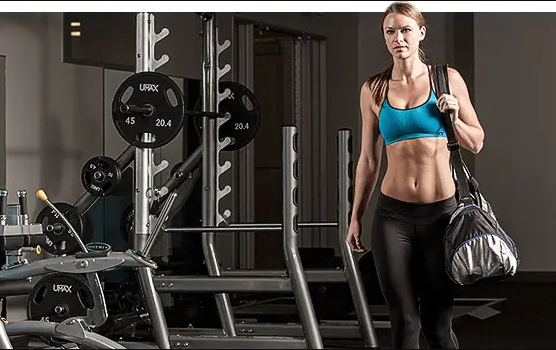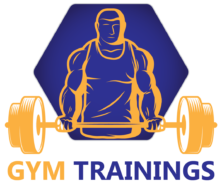How long should a workout last if you want to build muscle mass, gain strength, or perhaps improve your physical endurance? This is what I am going to try to explain throughout this article.

How long do you have to train per day? When we start training on our own, the same questions always come up, and this is one of them.
Let me anticipate that this will depend on some factors, basically your current condition and the type of training you do strength development, muscle mass development, resistance training, etc.
We’re going to structure this a bit so that you can find the answer based on the type of goal you have.
What times are we measuring?
This is the first thing we have to think about when someone asks “how long should a workout last”. But within our training routine, what exactly is the time we are measuring?
I mean. Are we just considering weight training (not counting cardio or anything else)?
But there are a lot of variables and things that happen from the first second we start our routine until we finish the last repetition! Should we take them into account?
Analyze it. What are we talking about specifically here?
- The total time we spend in the gym?
- The time spent doing real series?
- The time spent doing our warm-up?
- Time spent resting between sets?
- The time spent waiting for the person who started doing 3 sets on the machine that we had to finish the routine?
- Time spent in a passionate conversation about the weather with a colleague whose name we don’t know?
- Time spent searching the phone for the perfect song before the next series?
- The time we spent unloading the barbell discs left by the 120kg squatter?
- The time spent waiting for someone to finish using what we need to use? This I already said, right? It happens several times haha.
- Time spent looking for the other dumbbell?
I hope you understand my point, because we need to move on.
Measuring the ideal training time is something complex
There are a lot of things that go on in the gym, some of which are not even fully under our control, but which can add up to time and make a significant difference to the length of our routines.
I mean, you can send 3 people to 3 different gyms (or even the same gym at 3 different times of the day) with the exact same training schedule, and they will likely all finish training at different times.
And this variance will of course be much larger when the workouts are not the same, or when the goals of the person are not the same, or when the individual needs / preferences of the person are not the same.
As a general rule, a beginner needs less training time than an advanced athlete, and depending on this there are many variants that also intervene:
The number of muscles to train influences the time a routine should last
A basic full-body workout for a beginner could be very short. It may take as little as 30 minutes to complete.
But a full-body workout for someone advanced could take twice as long… maybe even three times as long.
An upper body workout will typically last longer than a lower limb workout, based solely on the fact that there are more things to train (chest, back, shoulders, biceps, triceps vs. quads, hamstrings, glutes, and calves).
Someone stronger will need more warm-up time than someone weaker, which will also significantly extend the duration of the routine.
Rest times and the duration of a routine
Someone with a 1-minute (or less) rest goal between sets will take less time than someone with a 3-minute (or longer) rest goal between sets. This would again make a significant difference in terms of time for each workout.
Special techniques influence the duration of a routine
Two people could use the same workout, but one person could use supersets and the other person could not. That first person will finish that same workout quite a bit faster than the second person.
For all these reasons and all the reasons mentioned above, what are we measuring? It is quite obvious that the concept that there is a certain time to train and that this must be strictly adhered to is quite… unnecessary, right?
So why do many claim that there is an “ideal” training time?
Some people often recommend training for no more than 30, 45, or even 1 hour.
It could be said that there are 3 main and very specific reasons for saying this, causing us to have to establish certain training times, but in general it is when we start in the world of muscle training:
- The first reason is to prevent you from doing a ton of unnecessary, counterproductive training that you shouldn’t focus on yet. Too many exercises, too many sets, too much volume, too much everything.
The idea behind this is to prevent you from doing the typical stereotypical strength training that occurs in most gyms.
- The second reason is to make sure you are in the gym to train and not hanging around with your friends, or texting or anything else that wastes your time.
- The third is to prevent certain ” bad things ” from happening to your cortisol and testosterone levels.
In some Facebook groups I have read responses that said something like: «Do not lift weights for more than 45 minutes, if you do, testosterone levels will plummet, cortisol levels will rise and you will be sucked into a catabolic black hole from which you can never escape. (They weren’t quite as literal but some of this included).
The idea that you should stop training after 45 minutes or else you’ll hit some kind of hormonal “tipping point” is one of the most ridiculous things we’ll see on the internet.
It is a statement that fails on a couple of levels, especially in the fact that this is not true.
In fact, some workouts lasting longer than 90 minutes have been shown to raise testosterone above resting levels for at least two hours after the workout has ended.
How do these points influence then?
Is it important to prevent # 1 and # 2?
Yes, # 1 is terrible and should be prevented because it affects our performance directly, and # 2 is a problem for many people as well, since it is attentive to achieving goals.
But as long as you’re not doing any of these things, there is no other legitimate reason why your workouts have to be exactly 30, 45, or 1 hour long and not one second longer.
No, there is not! Unless your occupation only allows you to be in the gym for a specific time.
What if our training is very long?
If we go back to the above, I would tell you that exactly at 46 minutes, the cortisol fairy will appear, take your testosterone, make your muscles parade instantly, and add 1 kilo of fat to your body for each additional minute that you remain within the Gym.
Conclusion: how long should the workouts last?
I would say that, on average between 30 and 120 minutes; but narrowing this down further, it can likely take 45-90 minutes most of the time, especially with targeted workouts (such as muscle building or strength building).
Keep in mind that if you train strength, development or power, the routines vary, in terms of the time of dedication, in different aspects:
- Number of repetitions and series, which in turn are influenced by loads.
- Speed with which you do the repetitions.
- Rest periods between sets and between exercises.
Basically, we can say then that there is no such thing as an optimal training duration. There is only the optimal training design.
In order to understand it, I will give you an example: A bodybuilder can train quietly for 2 hours in a row, but if your goal is to lose weight and you are just starting out, it will be necessary to do it for more than 30 minutes perhaps.
Everything boils down to your training goals, and so that you can establish them and know how to start diagramming your own routine, I share the following articles that will be very useful to you.
- What is Consistency in Physical Training?
- Focus on Training
- How many sets to do in an exercise routine?
- What is the Training frequency?
- Muscle Strength and its influence on training
- What is training intensity?
- What is the Specificity of Muscle Training?
- Progression in Physical Training
- Importance of Rest and Recovery in Training
